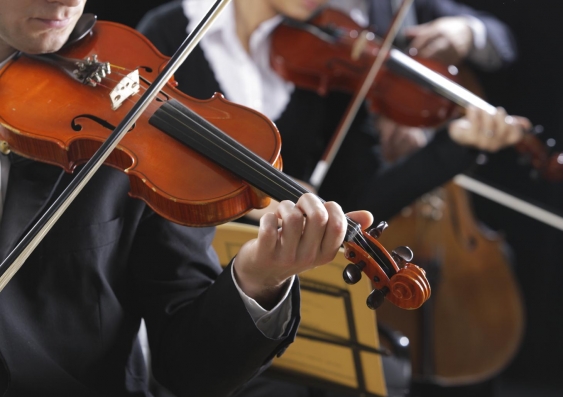ABC Classic FM late night changes to simulcast spur protest
Recent changes at ABC Classic FM raise key policy issues relating to the ABC's role and relationship to its audience, writes Jenny Stewart.
Recent changes at ABC Classic FM raise key policy issues relating to the ABC's role and relationship to its audience, writes Jenny Stewart.

OPINION: If, like me, you like listening to classical music on the radio in the wee small hours, you will have noticed, a couple of months back, a big change in the service offered by ABC Classic FM. The overnight program, expertly hosted in recent times by Bob Maynard, has been replaced by an FM simulcast from ABC Classic 2, an Internet-based station that purveys a continuous stream of short pieces and movements from well-known classical works, with no announcement as to who, or what, is playing.
In a world beset by crises, a change such as this may not seem such a big deal, but it does raise some key policy issues relating to the ABC, its role and its relationship to its audience. There are technological issues, too.
Clearly, I was not alone in being upset by the change to the overnight program, because the Classic 2 website had a list of "frequently asked questions" about the change. Yes, Bob Maynard was still employed by the ABC and would re-appear in various presenter roles. No, it was not a cost-cutting measure, because for some time they had been re-cycling pre-recorded overnight tapes, anyway. The programming was not bland, but featured Australian artists, and would be less fragmented once the playlist developed.
So there. You know when an organisation responds in this way to listener disappointment, that its mind is made up. You either put up with it, or go elsewhere. The question arises, of course, as to whether ABC Classic FM, will, sooner or later be completely supplanted by Classic 2 programming, in which case there will be no announcers on the station at all, anytime. If this were to occur, listeners would no doubt be told that they can always find out what's playing by looking on their computer, or their mobile phone app, or their digital radio readout, or by visiting the website after the event.
Whatever the technology used, listening is not the same without an announcer. A good announcer and program producer, working together, tell you a lot more about what is being played, and provide a connecting narrative as well – a much more satisfying listener experience than the non-announced alternative and, I would think, one that is much more likely to attract younger listeners to classical music.
But announcers cost more and we may have to face the fact that Classic FM is a form of middle-class welfare. And as we know, it is forbidden for the middle classes to receive any benefits whatsoever from their taxes. Given the ABC's apparent attitude to Classic FM, it's difficult to resist the conclusion that the ABC regards classical music listeners as expendable. The youth station, 2JJJ retains its overnight announcers, and even ABC News Radio switches to the BBC overnight. These priorities seem hard to justify when there are alternatives (with announcers) to News Radio on SBS and on Radio National, and to JJJ on overnight commercial radio. (Canberra's ArtSound features classical music only at certain times of the day).
I acknowledge that the audience for Classic FM, as it is for live classical music, is largely middle-aged to elderly. While there is certainly an age, as well as a generational effect operating here, the young are not being recruited to classical music to the same degree that my own generation was, probably another consequence of the relentless dumbing down of the education system. But classical music is the only music that we know, for sure, will last. The ABC should be doing all it can to keep its mature audiences and to engage young listeners.
The ABC claims that Classic 2 is more accessible to the young than the 'specialist' programming available on Classic FM. But this is a highly questionable assertion. If the ABC really wants to engage with younger listeners, it should provide announcers on Classic 2. Our culture is already far too visual for its own good. Music is an aural experience and we need announcers to provide good, spoken words to accompany it.
Overall, though, classical music would appear to be a low priority for the ABC. While most listeners would be unaware of the fact, the federal government is planning eventually to phase out all AM/FM radio broadcasting in this country. An array of digital radio stations, many of them digital versions of AM/FM stations, are already simulcasting, in anticipation of this event.
Governments like the idea of moving from analogue to digital, as it frees up transmission space to be sold off. Listeners, though, are not convinced. The receivers are expensive, and many of the stations sound rather hard-edged and scratchy, as the bit rates on which they broadcast are quite low (bit rates are the speeds at which information is relayed via the digital process. A low bit rate is suitable for the spoken voice, but higher bit rates are needed for reasonable musical reproduction.) The bit rate for the digital version of ABC Classic FM, interstate, is only 80 kilobits per second, well below the 128 kilobits per second that I have found provides an enjoyable musical experience when listening to a digital broadcast.
The ABC's claims that it is supporting the growth of a younger audience for classical music via an impersonal, Internet-based station are simply not convincing. Attracting younger listeners to the classics depends on good quality sound, and good announcing. Neither of these seem to be real priorities at the moment.
Professor Jenny Stewart is a Visiting Fellow in the School of Business, UNSW Canberra.
This opinion piece was first published in The Canberra Times.